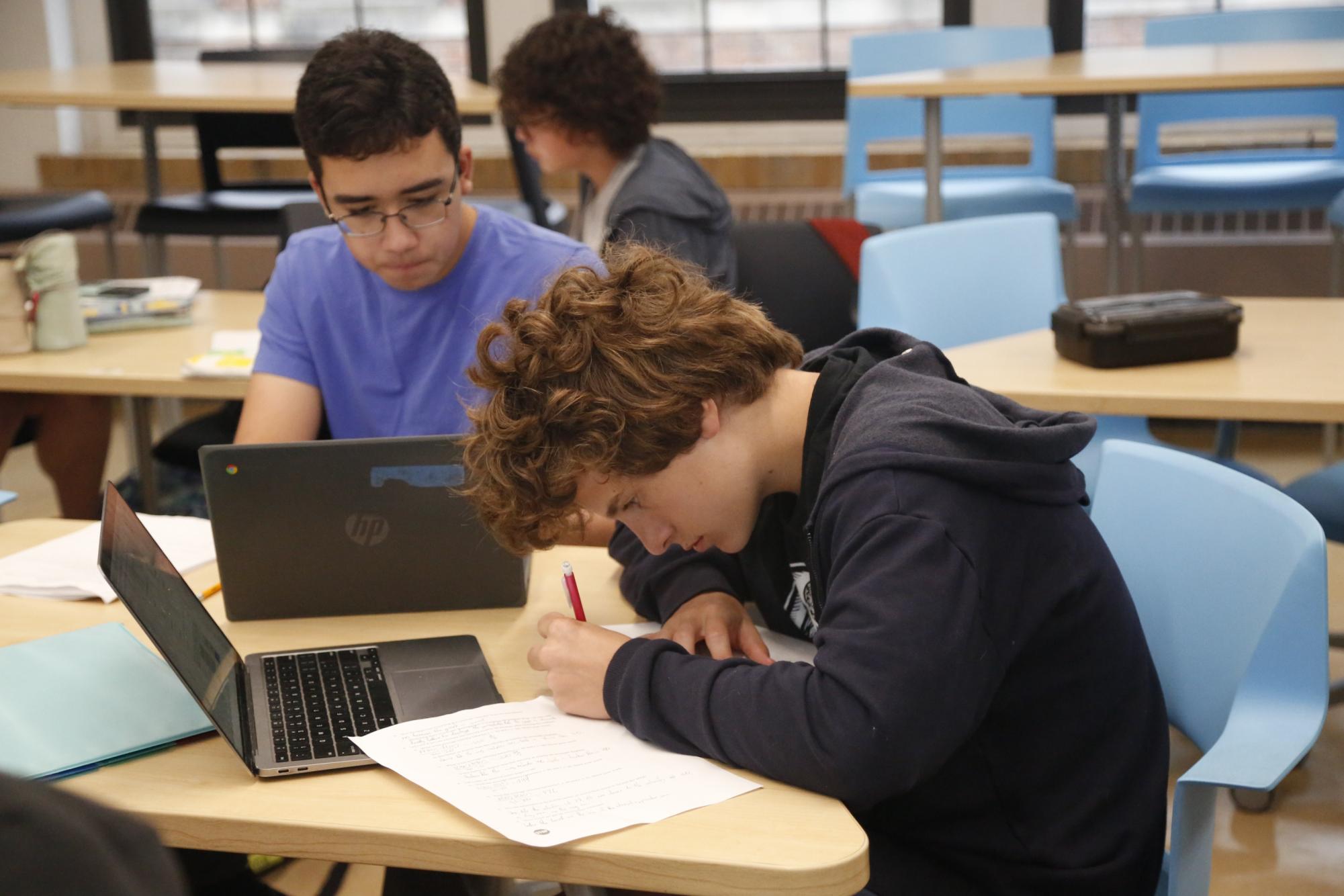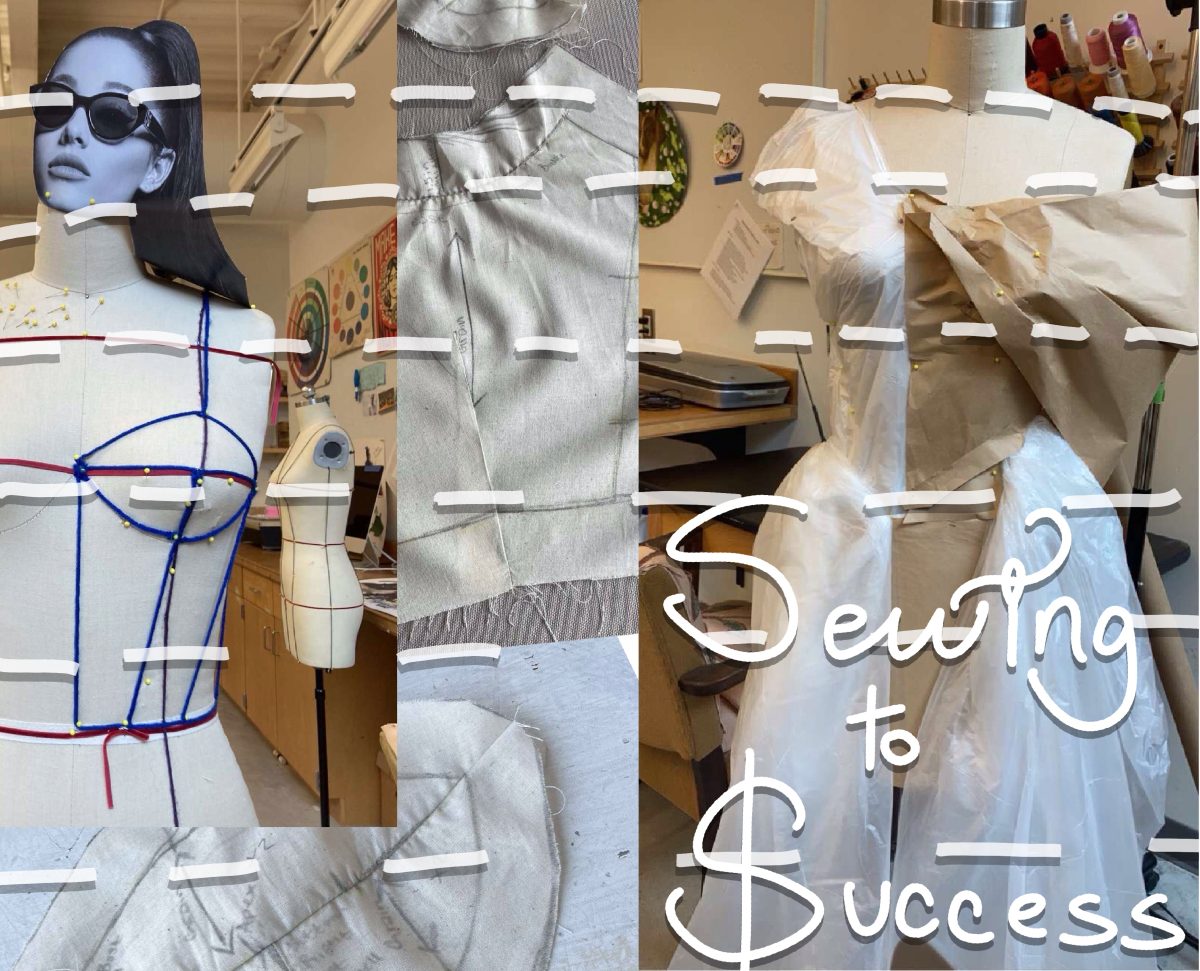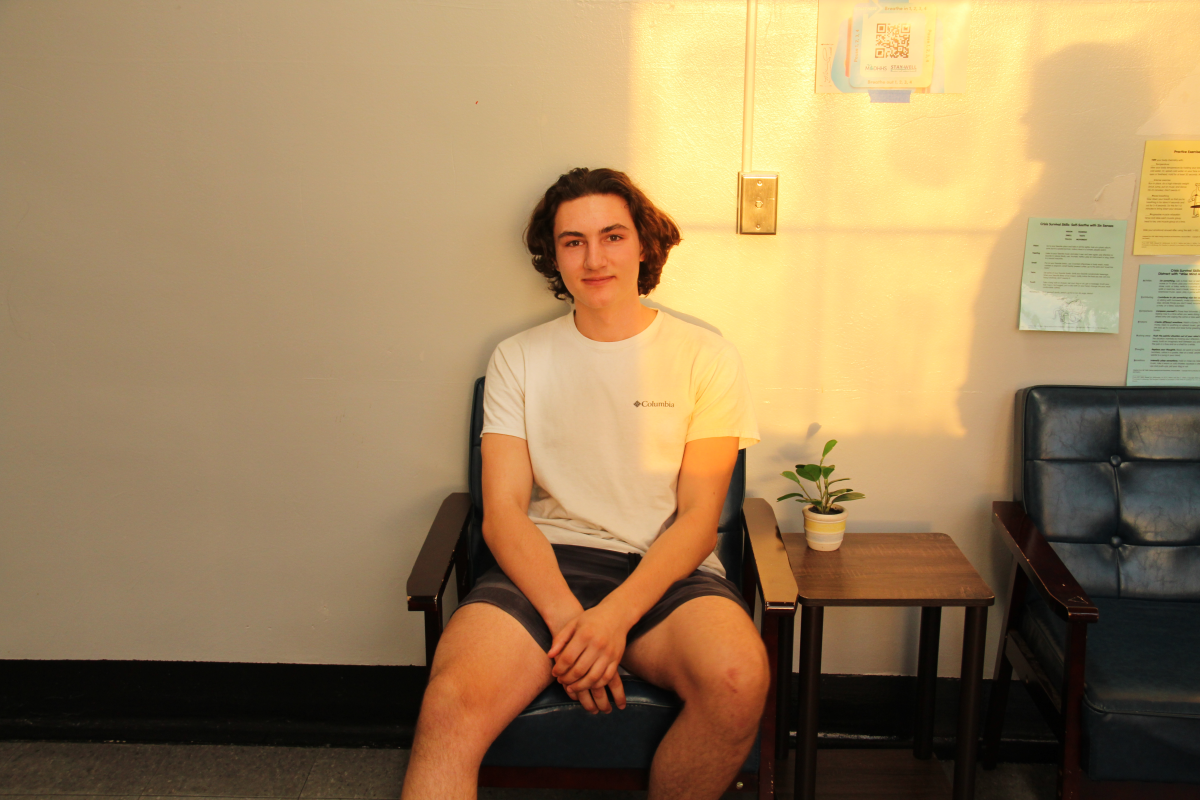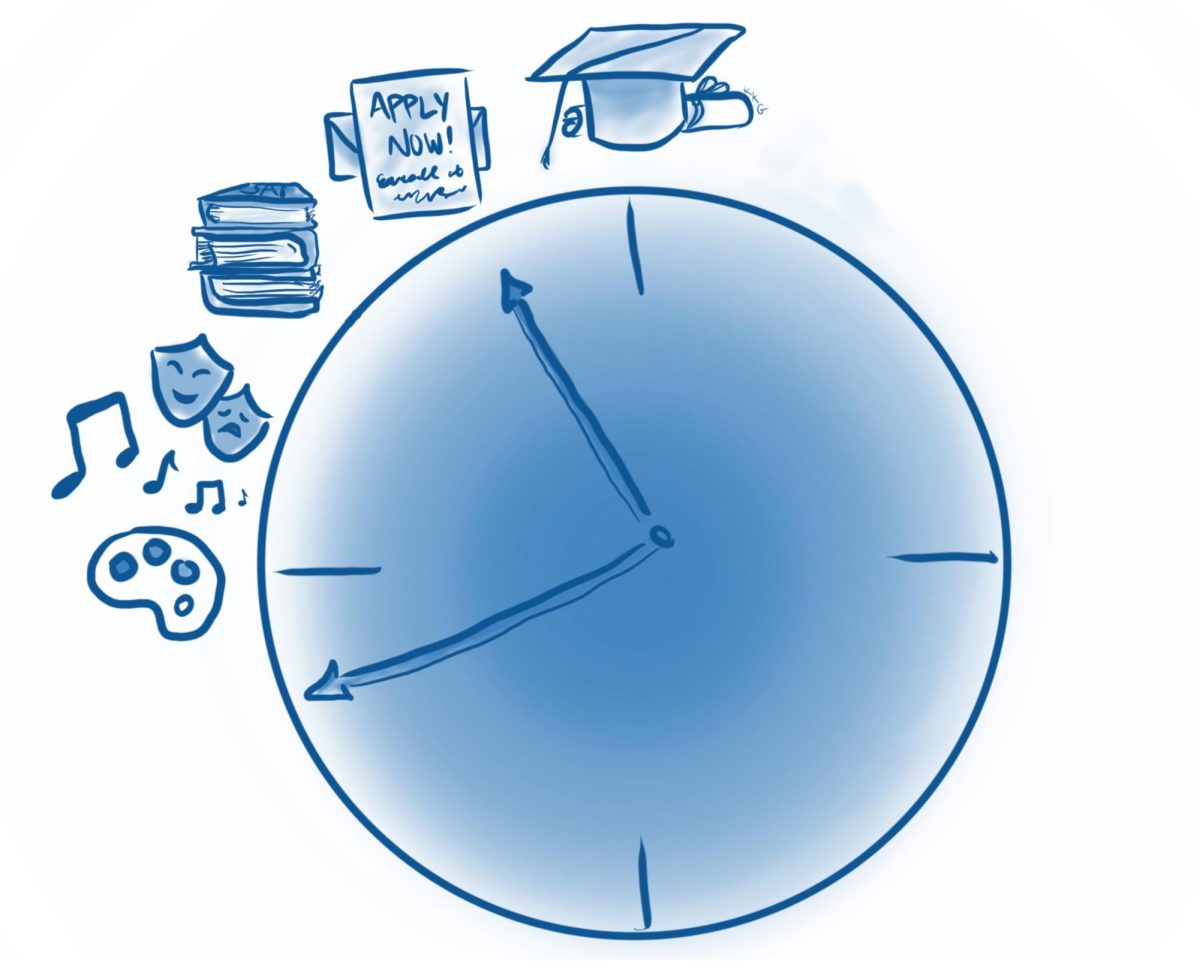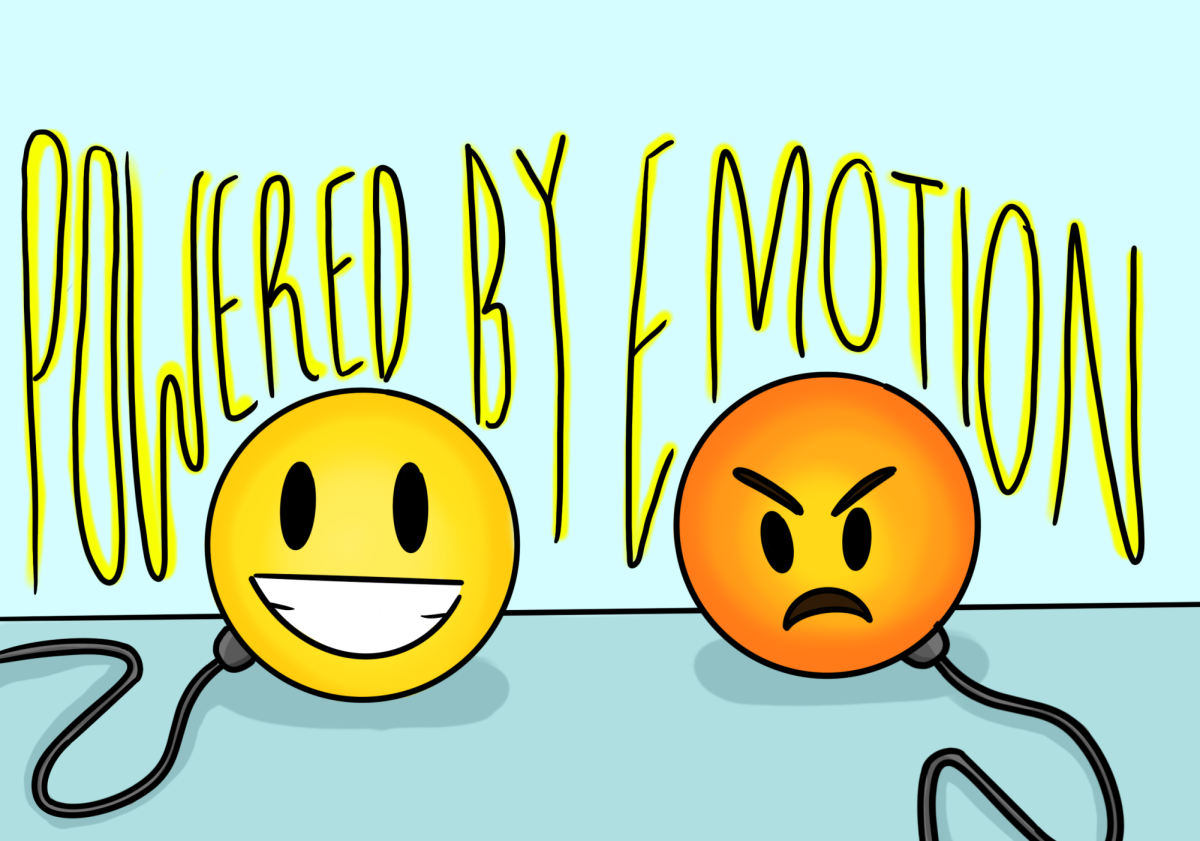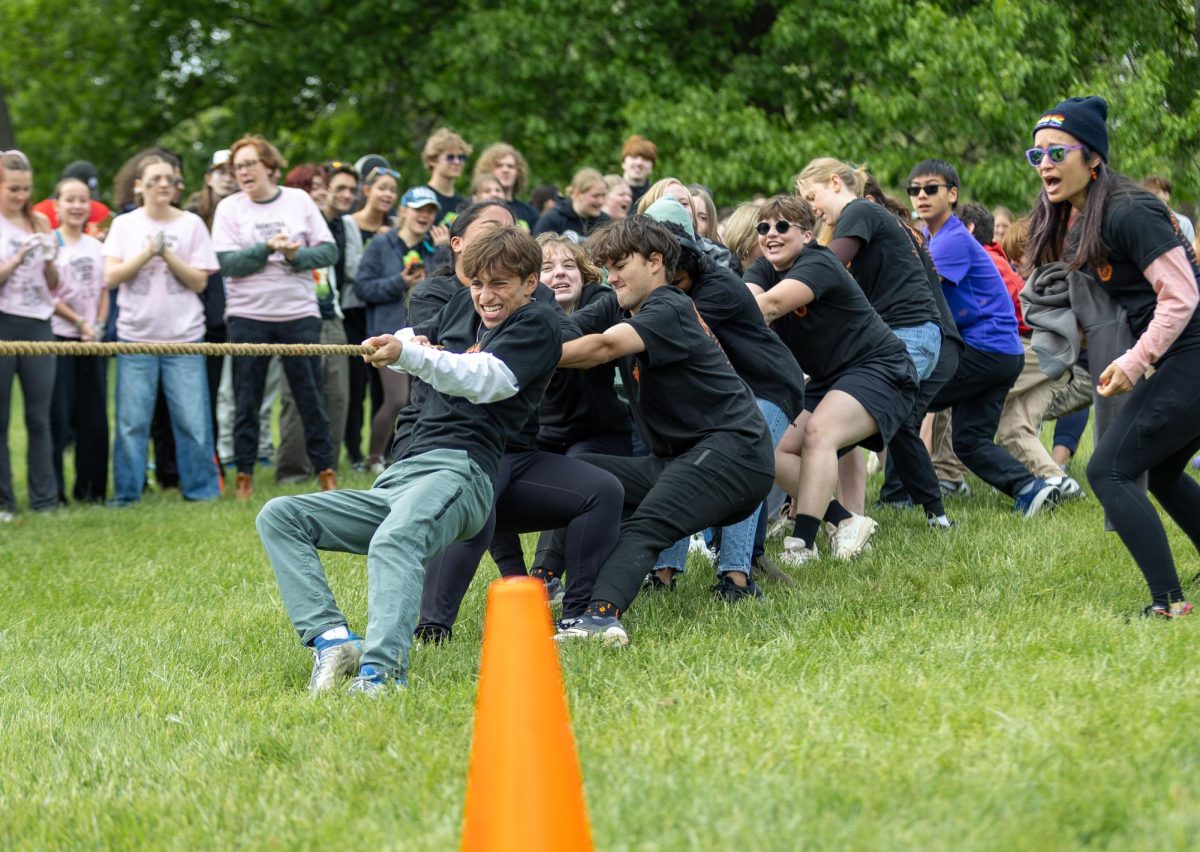Why do we take the PSAT as juniors?
“First, junior year is the year that the state requires all juniors to take the SAT in the spring, so we have an opportunity to go through a practice round so when the real test comes around, you already have at least one time going through a timed actual test. The other part is that the PSAT is the National Merit Scholarship Qualifying Test, so if students do well enough on it they can qualify to be a National Merit Semifinalist, which is a scholarship program through College Board. It’s a really nice recognition first and foremost, but it can also lead to scholarship money if you become a finalist.”
What are some similarities between the PSAT and SAT?
“First of all, this PSAT and the upcoming SAT will both be online, which is new to everyone. You’ll have access to a lot of digital tools including a calculator, a highlighter and the ability to mark up text or cross out answer options. There’s also this AI sort of setup where you’ll get harder questions on the second part of a test if you got a lot correct in the first half, and vice versa.”
What are some strategies students who are nervous about the test can use?
“First and foremost, remember it’s just a test. The PSAT is not a reflection of you as a person. It sounds really basic, but our self talk – the way that we wake up in the morning, the way we walk, the things we say in front of the mirror – it all matters. Our inner dialogue dictates how we feel about situations, so interrupting negative thoughts with something more healthy, like, ‘I am so much more than a test,’ or ‘I have so many other strengths that go beyond how I perform on the PSAT,’ can be very helpful; a positive mindset will help you perform better.”
What are good ways to prepare for the upcoming SAT?
“Khan Academy is a helpful tool where you can do some practice questions or sign up for a question of the day. This can get students used to how test questions are formatted, since oftentimes how the questions are phrased gets people hung up. Also, practicing under a timed environment can help you know what to expect on test day.
Remembering test-taking strategies like starting with questions that you know and not letting yourself dwell for longer than five minutes on any one question is so important with the time limit that we’re under this for this test. And basic things too, like trying to put your phone away the night before and eating a nutritious breakfast and having something look forward to right after the test are those little coping skills to help students get through the day a little easier.”
Are there any drawbacks to everyone taking the PSAT do you think?
“I personally am not a big fan of these tests. And I feel like that’s becoming more of a common belief, even from the places that normally we take these tests for, like colleges. So many are making test scores optional or just straight-up saying, ‘no, we don’t want your scores.’ And so, to me, the drawback [is that] this is a stressful thing for many of us. I know the state still wants to see scores as a measuring point to evaluate the effectiveness of schools, but again, my hope would be that since colleges are saying that standardized testing is not as useful of a tool, that maybe the state can start thinking about other ways to assess our education system.
These tests are helpful for for a chunk of our students, but if you’re not in that bulk of students who benefit just know that we like wholeheartedly still see great things for you and your future and that doors will be open for opportunities no matter how you perform on this test. So it can be just inconsequential for some”
Do you think the PSAT and SAT are an accurate reflection of our school and student body?
“We do well on these tests historically without really trying to stress them too much, which shows how our teachers do such a wonderful job with what they teach. That allows us to do a lot of the cool things that we’re able to do at this school, and in the meantime, since there’s not another way to be evaluated, it’s important that we go in and give our best because our scores give us the flexibility to do the unique things that Community High School is able to do. Some people are like, ‘what’s going on with that hippie school Community High? What’s that all about?’ and we’re able to show that students are performing in a way that’s consistent with a lot of other top schools in the country.”
What are some other factors that we could or should use more to evaluate learning?
“Your transcript says a lot more about who you are as a student than a three hour test does. I don’t know if there’s a way for the state to look at a more holistic picture of each student and how the school is teaching, but I think a more nuanced metric could be a better indication of how the school is actually doing. Again, this is a complicated situation because it’s really easy to look at a test and make a quick decision, but I don’t think it’s impossible to evolve this system. We can be more creative in how we look at how we evaluate school. Even a letter grade that you get in a semester-long class only says a small bit about you as a student or as a passionate activist or learner or community member. A B to one student looks very different than a B for another student. Instead, having some sort of portfolio submission, where you have the opportunity to showcase something that you’re proud of or that was experiential for you, – whether it be an art piece, or an interview, or a writing sample – that represents another side of a student that can’t be reflected in a letter grade or to score would change the game.”




